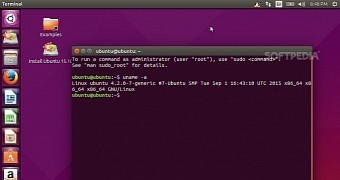After releasing a major kernel update for all supported Ubuntu Linux operating systems a couple of days ago, Canonical has announced today, December 20, the availability of new kernel versions for Ubuntu 15.10, 15.04, 14.04 LTS, and 12.04 LTS.
According to today's Ubuntu security notices published on the project's website, there were four more security issues that affected the Linux kernel packages of Ubuntu 15.10 (Wily Werewolf), Ubuntu 15.04 (Vivid Vervet), Ubuntu 14.04 LTS (Trusty Tahr), and Ubuntu 12.04 LTS (Precise Pangolin).
The first security flaw was discovered in Linux kernel's Xen paravirtualized drivers, a race condition that could have allowed an attacker that had access to the paravirtualized guest to crash the host system by causing a DoS (Denial of Service) attack or execute random code on the respective host.
The second and third security vulnerabilities were discovered in Linux kernel's Xen PCI backend driver, which was not able to perform sanity checks on a device's state, which could have enabled an attacker to cause a denial of service on the respective host system either by flooding it with WARN() messages or via a NULL dereference.
A ptrace issue has been patched in Linux kernel's user namespaces
The fourth security flaw was discovered in Linux kernel's ptrace component, which could not correctly handle user namespaces, thus allowing the owner of the respective namespace to gain root access and eventually attack other users on the system. This issue does not apply to Ubuntu 12.04 LTS.
All users of Ubuntu 15.10, 15.04, 14.04 LTS or 12.04 LTS are urged to update their systems as soon as possible to the new kernel versions, linux-image-4.2.0-22 (4.2.0-22.27) for Ubuntu 15.10, linux-image-3.19.0-42 (3.19.0-42.48) for Ubuntu 15.04, linux-image-3.13.0-74 (3.13.0-74.118) for Ubuntu 14.04 LTS, and linux-image-3.2.0-97 (3.2.0-97.137) for Ubuntu 12.04 LTS.
To update, run the Software Updater utility from the Unity Dash, wait for it to refresh the software repositories and fetch the new updates, and then apply all available updates by pressing the "Update All" button. After a kernel update, you will need to reboot your computer, as well as rebuild any third-party kernel modules you might have installed.

 14 DAY TRIAL //
14 DAY TRIAL //